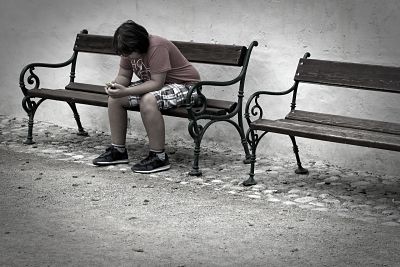 Recent attacks in Paris, San Bernardino, Orlando and other areas of the world remind us that mass violence is an issue faced by young people around the globe. While these events aren’t new, today’s technology and 24-7 news cycles bring the stories with frightening speed and consistency.
Recent attacks in Paris, San Bernardino, Orlando and other areas of the world remind us that mass violence is an issue faced by young people around the globe. While these events aren’t new, today’s technology and 24-7 news cycles bring the stories with frightening speed and consistency.
How does growing up in what seems to be an increasingly violent world affect young people? And how can parents cope with the confusion, fear and anger their child may feel after violent tragedy?
How does terrorism and mass violence influence teens?
Not all young people react to terrorist attacks and violent events in the same way. Some may show little or no reaction, while others may need consistent support. Some may not know how to bring up the topic. You may find your child is not ready to talk about the event, or doesn’t feel particularly worried or impacted.
In a report titled Talking to Children about Terrorism family science specialist Sean Brotherson identifies some of teens’ common reactions to violent events, including shock, disillusionment about life or people, mood swings, engaging in risky behaviors and concern for the future.
Finding a way to address a teenager’s feelings can be challenging for many parents, says Allie Barringer, a graduate student in human development and family studies at the UW-Madison.
“On one hand, teens are striving to form their own opinions and beliefs and may appear annoyed when parents interfere in their personal lives,” says Barringer. “On the other, teens may secretly desire their parents’ support and guidance—even if they don’t show it.”
Barringer has some suggestions and resources to help parents talk with teens about mass violence in ways that are positive and constructive.
Offer reassurance and support through active listening
While it may be tempting to tell your child everything is ok and there’s no reason to worry, teens may interpret this response as being dismissive, Barringer says. It is completely normal to feel a range of negative emotions after exposure to an attack, many of which adults are also experiencing.
“Instead of immediately reassuring your teen, try asking open-ended questions to gauge what they are thinking and feeling about the situation,” says Barringer. You can start with “What do you know about this event?” or “Have you been talking about this situation in school recently?” opening the floor for your teen to voice their opinions and concerns.
By listening, you are already providing support and reassurance. Barringer suggests listening to Brené Brown’s TED Talk on The Power of Vulnerability, and viewing a post from the myparenthetical.com website on Whole-Hearted Parenting for parents who wish to learn more.
Learn together
Your teen may have a lot of questions about what happened—some more complicated than others. If your child asks you a question you don’t know how to answer, it can be a great opportunity to learn together. For example, if you’re asked about conflict in a region of the world you are unfamiliar with, get on the computer together to do some research.
Although it is important that both you and your teen remain informed and aware of current events, constant media exposure can have negative results. Witnessing graphic images, video clips and alarming broadcasts repeatedly can leave your child feeling overwhelmed. Instead of leaving the television or radio on in your home, try regulating the amount of time your teen is exposed to news coverage. For instance, set aside 30 minutes each night to watch the evening news together and then discuss questions your teen has after the broadcast. Barringer says that another good resource is the PBS article How to Talk to Your Kids About the News.
Maintain routines
Routines can provide teens and their families with a sense of normalcy and reassurance, even during times of crisis. Ensure that children are maintaining their normal routines as much as possible. Eating healthy meals, getting plenty of sleep and making time for fun activities with their peers promotes positive emotional and physical health.
Avoid stereotypes and generalizations
Violent attacks are typically carried out by a select group of individuals intending to promote fear and misunderstanding. Therefore, many people are left feeling angry and confused. It is understandable that many teens feel angry, and may even discuss retaliation after a terrorist attack. But it is critical that teens understand the actions of a few do not represent the beliefs or actions of all.
Barringer suggests that parents try having a discussion with their teen about the negative impact prejudice and stereotypes can have on certain groups, and the importance of acknowledging differences of opinions—especially in the communities in which they participate (for example, school settings and sports teams).
“Simply being open to having this conversation while acknowledging the confusion that their child might be feeling is already a great way for parents to model tolerance and acceptance,” says Barringer.
Develop a safety plan
Some parents might worry that preparedness conversations with their teens will only increase fears, but in a recent PBS NewsHour video essay, National Security Analyst Julitette Kayyem says that preparing for the “bad thing” that might happen helps both kids and parents manage their fears.
One way parents can work with their teens to maximize readiness is by creating a family safety plan, an activity that should leave your family feeling safer and more empowered to take action and communicate with one another during a crisis.
Find ways to help others
Teens may express an interest in tackling major societal issues after a terrorist attack. For example, after a mass shooting your child may want to find ways he/she can impact gun violence in the community. “Encourage your teen to find small, manageable ways to influence those directly around them initially, while explaining small steps can lead to larger changes,” says Barringer. “Some ideas may include participating in non-violence school programming, writing a letter to the editor, researching alternative options to violence and practicing conflict resolution with peers.”
Promote positivity
It’s easy to be bogged down by the negativity surrounding hate crimes. Barringer says that the motivations of a select few often become our focus after a violent event, while the actions of thousands, if not millions, of supportive individuals can fall to the background. Remind your child during these times there are significantly more people in the world who do not agree with violence, and are willing to come together to solve problems. Challenge your teen to find these positive stories in the news and in their own lives, and discuss the impact kindness can also have during times of crisis.
Seeking-out additional help
Some teens may benefit greatly from parental support and guidance, but still need additional help. If you notice your teen displaying behaviors that concern you, it may be best to reach out to a mental health professional. Additionally, children struggling with mental health issues prior to the event (such as anxiety or trauma) may be at a higher risk for health concerns and need further support. The Substance Abuse and Mental Health Services Administration offers a Behavioral Health Treatment Services Locator to help individuals with this search process.
Talking about terrorism, war and violence is difficult at any age, especially when many adults want to protect children from the topic. But parents play an essential role in reframing terrifying, violent acts. Through intentional conversation and supportive responses, parents can help teens find a balance between feeling safe and responding to negative events in a positive, constructive way.




